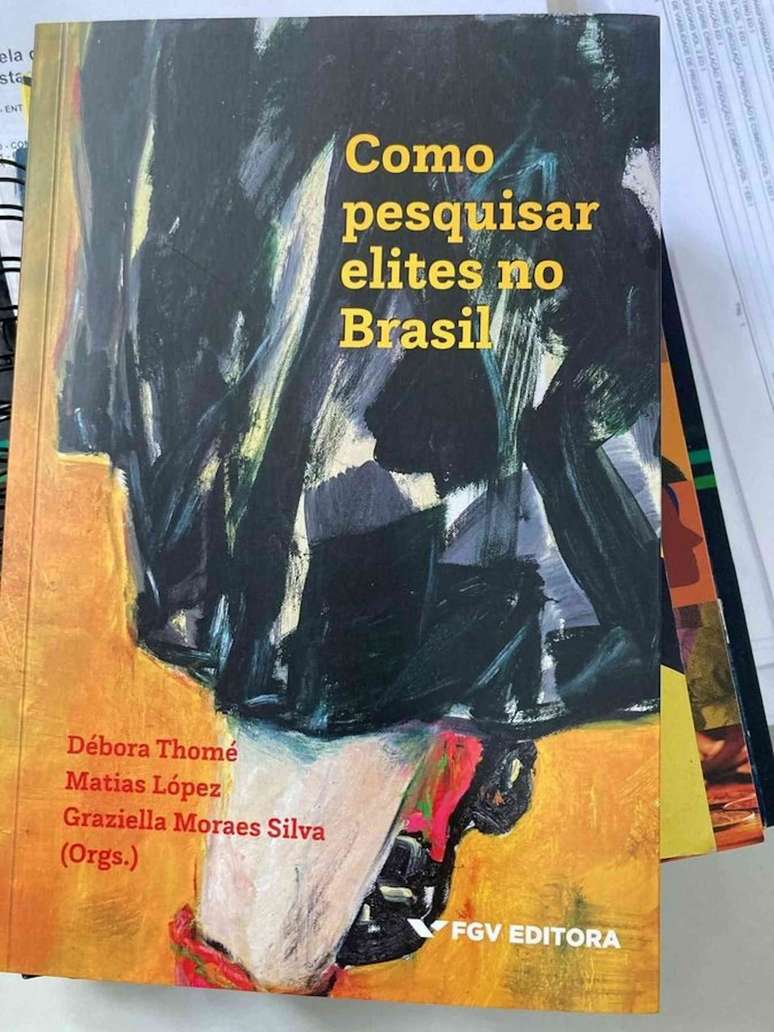In addition to showcasing luxurious privilege, the book reveals how people in positions of power perceive their roles and act to influence the direction of the country.
From memes to streaming series, the interest in the elite – understood as very rich and influential people – has once again occupied the public debate in Brazil and around the world. In recent cultural productions there is an often ironic approach to how “those above” live: what they consume, where they live and what values they cultivate. In general, they reinforce the sense of distance between the daily life of those who live with an income around the average and the world of ostentatious, and even slightly eccentric, consumption of the super rich.
Even in academic research this interest is growing. In recent years, books such as Coisa de rico, by the anthropologist Michel Alcoforado, have attracted attention by describing the habits of economic elites with humor and irony. In ethnographic style, Alcoforado observes the rich in their natural habitat. This line of work is important because it reveals how consumption and lifestyle mark symbolic boundaries between social classes.
But the world of the elite is not just wealth, it is essentially the world of power. This is the focus of our new book How to Research Elites in Brazil, recently launched by Editora FGV, which brings together different approaches and field experiences on the topic.
Our goal is to show how studying elites helps explain the wheels that move Brazilian politics and economics. In addition to showing luxury privilege, we want to understand how people in positions of power perceive their role and act to influence the direction of the country. In particular, how elites evaluate different forms of inequality and the public policies available to reduce them.

Book How to research the elites in Brazil.
Image: personal collection.
Previous research
This perspective dialogues with a tradition of studies on elites in Brazil. Political sociologist Elisa Reis, coordinator of the Interdisciplinary Center for Inequality Studies (NIED) at the Federal University of Rio de Janeiro (UFRJ), is a pioneer in this field. Since the 1990s, the researcher has published works on the topic through in-depth investigations and interviews. In addition to using some data from her projects, one of the book’s chapters also contains an interview with the researcher.
In other research by our team, which inspired much of the book’s thinking, we investigated those in senior positions in the executive branch, legislature, and large corporations. The study of these central figures has proven useful in understanding the direction of Brazilian politics. After all, those in power tend to influence the paths that society takes, and knowing their motivations helps explain why certain decisions are made.
This does not mean, however, adhering to conspiracy theories that imagine an omnipotent elite that controls everything. As Karl Marx said: “Men make their own history, but they do not make it as they want.” A phrase he used, in fact, analyzing the action of a member of the elite: Luís Napoleão.
The point is that even elites disagree with each other and make mistakes. They often make decisions based on misinterpretations and act contrary to their own interests. To understand these results – even the seemingly contradictory or irrational ones – it is essential to investigate the perceptions and strategies of these actors at the moment of decision.
Sampling challenges
However, researchers venturing into this field face a central obstacle: accessing their interlocutors. People in positions of power are not always willing to participate in research, either due to lack of time, mistrust, or simply because they do not see the advantage of allowing themselves to be studied. The challenge is even greater for those who want to construct a probability sample, i.e. with a lottery component to allow statistical generalizations.
One of the most effective ways to address this barrier is the use of standardized questionnaires, applied to specific elite groups. In the chapter written by Matias López, researcher at the University Diego Portales (UDP), we discuss in detail how to design this type of study. Two crucial steps are combined: defining the sample (who should potentially be included) and building the instrument (how to formulate questions that truly capture perceptions and values). The author analyzes metadata from several projects and presents simulations that test the effectiveness of these methods.
It has long been believed that traditional sampling techniques, widely used to study the general population, would not work well with elites. However, the findings show that, with appropriate adaptations, these methodologies can offer reliable portraits of the thinking and practices of those who exercise power in Brazil.
Interactions between interviewees and researchers
Another challenge is the relationship between researcher and researched. In the chapter by researchers Mariane Silva Reghim and Gabriela de Brito Caruso, we discuss how gender influences access to these interlocutors and how power relations between researcher and interviewee are shaped by these dynamics in such a masculinized space.
Débora Thomé, postdoctoral researcher at FGV, and Livio Silva-Müller, postdoctoral researcher at Harvard, explore how creativity and perseverance become essential tools for conducting elite surveys, without losing the necessary rigor. An example provided by the authors is the hunt for deputies when moving from one commission to another.
Interviewing elites often means facing resistance. Some interviewees reformulate questions or avoid positioning themselves within predefined categories. The paradox is interesting: many of these agents use opinion polls to support their decisions, but feel uncomfortable when they are the ones being researched.
This reaction reveals how a part of the elite tries to maintain control over the discourse that concerns them, resisting being described or classified. Débora Thomé also talks about her experience on these topics together with Graziella Moraes Silva, professor at the Graduate Institute in Geneva. The researchers show real examples tested with some executives (CEOs) of large companies.
Political elites: a special case
The book explores different segments of the political elite, which do not always perceive themselves as such. The chapter by Talita São Thiago Tanscheit, professor at PUC-Rio, for example, discusses the case of the Workers’ Party (PT), whose leaders often reject the label “elite”, even if they occupy positions of great influence and decision-making power.
Caroline Caldas, Thais Ferreira Rodrigues and Maíne Souza show an inverse phenomenon: the further away someone is from the top of the government hierarchy, the more likely they are to identify as part of the elite.
A tool for studying power
Our proposal is to offer useful tools to social scientists who want to interview, ethnograph or even conduct experiments with elites, as shown by Marcela Machado and Eduardo Barbabela in their chapter. These types of studies are growing in Brazilian social sciences, but still face many practical and theoretical difficulties.
The book is not intended to be exactly a manual, but it offers a complete and direct overview of the challenges related to designing and carrying out research with this group that is so difficult to access – and, at the same time, so central to understanding the dynamics of power in Brazil.

Matias López receives funding from the Swiss Network for International Studies and from COES (Centro para el Estudio del Conflitto y Cohesión Social)
Débora Thomé is an associate researcher at FGV Cepesp and president of the Gender and Politics section of IPSA – International Political Science Association.
Graziella Moraes Silva received funding from the Swiss National Science Foundation to carry out this project (https://data.snf.ch/grants/grant/189037). The publication was also supported by the Geneva Graduate Institute, where Graziella works as a professor in the department of Anthropology and Sociology and is co-director of the Albert Hirschman Center on Democracy. Graziella is also a researcher at the Interdisciplinary Center for Inequality Studies at UFRJ.
Talita Tanscheit received funding from the Fonds National Suisse (FNS) to carry out this research. He is a member of the board of directors of the Chilean think tank Rumbo Colectivo.
Source: Terra
Rose James is a Gossipify movie and series reviewer known for her in-depth analysis and unique perspective on the latest releases. With a background in film studies, she provides engaging and informative reviews, and keeps readers up to date with industry trends and emerging talents.





-ubrgialfr7sh.jpg)

